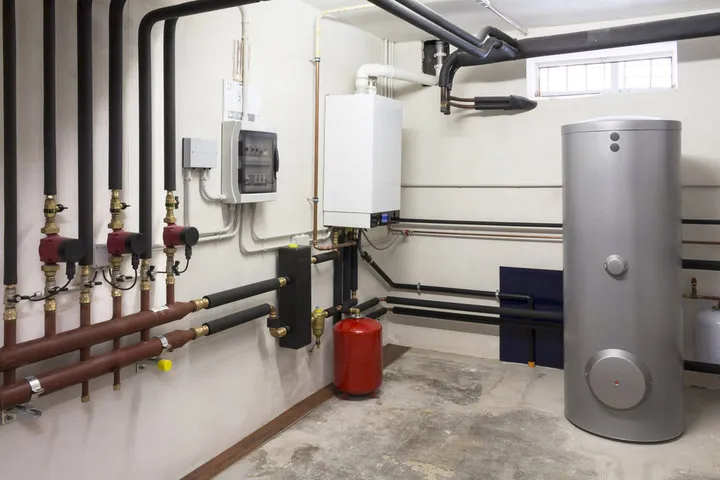Water Filtration in Lansing, KS
Water filtration in Lansing, KS explains how whole-home and point-of-use systems address local water quality needs, from chlorine taste and hard water to iron staining and microbial concerns. It outlines how we assess water, select certified equipment, and balance performance with maintenance, space, and budget. The guide covers installation expectations, routine filter changes, testing, and warranties, and highlights benefits such as improved taste, extended appliance life, reduced scale, and safer drinking water for Lansing homes.
Water Filtration in Lansing, KS
Clean, safe water is a foundational comfort in every Lansing, KS home. Whether your water comes from a municipal supply or a private well, the right water filtration strategy improves taste and odor, removes contaminants, reduces scale and staining, and protects plumbing and appliances. This page explains whole-home and point-of-use water filtration options for Lansing residences, how we determine what your home needs, typical installation and maintenance expectations, and the certifications and performance measures that matter when choosing a system.
Why water filtration matters for Lansing, KS homes
Lansing homeowners commonly notice issues that benefit from filtration: chlorine taste or smell from city treatment, hard water scale that dulls fixtures and shortens appliance life, reddish staining from iron, or occasional cloudiness and sediment after storms. In areas with private wells or near agricultural land, seasonal runoff can increase the risk of nitrates, organic matter, or microbial activity. A properly selected filtration approach addresses these local realities while delivering consistent, safe water throughout your home.
Common water quality issues in Lansing and recommended system types
Below are typical problems and the filtration technologies that handle them best.
- Chlorine or chloramine taste and odor
- Activated carbon whole-home or point-of-use filters, catalytic carbon for chloramines
- Hard water (calcium and magnesium scale)
- Water softeners (ion exchange) or salt-free conditioners for scale reduction
- Sediment, sand, rust
- Whole-house sediment filters (multi-stage or pleated cartridges)
- Iron and manganese staining
- Oxidation/filtration systems, iron-specific media, or catalytic carbon depending on levels
- Lead, arsenic, nitrates, VOCs
- Reverse osmosis (RO) for point-of-use removal; specialty whole-home systems where appropriate
- Bacteria, viruses, and parasites (well water concerns)
- UV disinfection combined with pre-filtration; RO plus UV for point-of-use protection
- Cloudy or bad-smelling water after heavy rains
- Comprehensive testing to identify organics or turbidity, followed by sediment and carbon treatment
Water testing and contaminant assessment
Effective system selection begins with a professional water test. A complete assessment typically includes:
- Hardness (grains per gallon or mg/L)
- pH and total dissolved solids (TDS)
- Chlorine and chloramine levels
- Iron, manganese, and sulfur compounds
- Nitrate and nitrite
- Lead and heavy metals
- Bacterial analysis for coliform and E. coli
- VOCs or pesticide screening when indicated
Test results let technicians recommend targeted solutions rather than guessing. For Lansing homes on municipal supply, tests often confirm chlorine and hardness as primary issues. For well owners, microbial and nitrate screening are especially important.
How we select the right system
Key selection criteria include:
- Source of water: municipal vs well
- Identified contaminants and their concentrations
- Household size and peak flow demand
- Existing plumbing layout and available space
- Long-term maintenance preferences and filter-replacement intervals
- Budget and desired performance goals
Selection favors systems certified to established standards so performance claims are verifiable. Typical configurations mix whole-home protection (sediment + carbon + softener) with point-of-use RO under kitchen sinks for drinking and cooking water.
Installation process: what to expect
Whole-home and point-of-use installations differ but follow a consistent process.
Site evaluation and measurements
- Inspect service line entry, available space for tanks or housings, and plumbing layout.
Confirm water test results and final system selection
- Choose pre-filtration, main treatment, and any point-of-use units.
Prepare installation area
- Mount filters, install bypass valves, set up tanks and drain connections, and ensure electrical needs for UV or powered systems.
Install and commission
- Connect plumbing, flush and sanitize where required, program softeners or controllers, and verify flow rates and pressure.
Post-install verification
- Re-test water at relevant points to confirm contaminant reduction and record maintenance points and schedules.
Typical whole-home installs take a few hours to a full day depending on complexity; under-sink RO or UV installations are often completed in a couple of hours.
Maintenance and filter replacement schedules
Maintenance keeps systems performing as promised. Typical intervals:
- Sediment filters: replace every 3 to 12 months depending on sediment load
- Activated carbon cartridges: replace every 6 to 12 months
- Reverse osmosis pre-filters: replace every 6 to 12 months; RO membrane every 2 to 5 years
- UV lamp: replace annually; quartz sleeve should be cleaned or replaced as recommended
- Water softener resin: lasts 10 to 15 years with proper care; salt replenishment varies with use (monthly or as needed)
- Iron-specific media: backwash and media replacement schedules depend on iron concentration and system type
A predictable maintenance plan based on your test results and consumption prevents performance degradation and protects warranties.
Certifications and performance guarantees
Choose systems and components certified by recognized organizations so you know performance is independently verified. Important standards include:
- NSF/ANSI 42: aesthetic effects (taste and odor)
- NSF/ANSI 53: health effects (reduction of contaminants like lead)
- NSF/ANSI 58: reverse osmosis systems
- NSF/ANSI 55: UV microbiological reduction
- WQA Gold Seal: product and material quality
Reliable providers will supply documentation of certifications and outline any performance guarantees that accompany installation and products.
Benefits beyond taste and odor
A properly engineered water filtration solution delivers measurable benefits for Lansing homeowners:
- Improved drinking and cooking water quality
- Reduced scale extends the life of water heaters, washing machines, and dishwashers
- Softer water means cleaner laundry, shinier fixtures, and less soap use
- Targeted removal of contaminants protects family health and reduces plumbing repairs
- Point-of-use RO provides bottled-water quality without recurring plastic waste
For Lansing, KS properties it is important to match treatment to local conditions-municipal chlorine and seasonal hardness are common drivers for combined whole-home carbon and softening systems, while private wells often need microbial and nitrate-focused solutions including UV. Long-term performance depends on correct sizing, certified components, and adherence to maintenance schedules.
If you are evaluating whole-home or point-of-use water filtration, begin with a comprehensive water test and a review of your household’s flow and quality needs. Armed with test data and an understanding of available technologies-activated carbon, reverse osmosis, UV, sediment filtration, and water softeners-you can select a system that delivers reliable, long-term results for your Lansing home.









